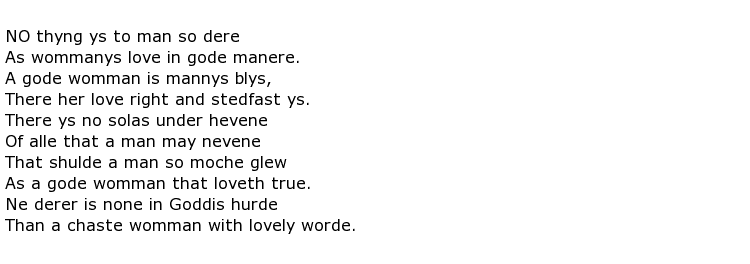 Robert Mannyng of Brunne, sometimes referred to as Robert de Brunne, was one of those vital scribes who lived during medieval times and did history the great service of chronicling the events around them and, sometimes, from much further afield. He belonged to the Gilbertine order of monks and was a poet. Most of what is known about this man comes from two of his own pieces of work: Handlyng Synne and Mannyng’s Chronicle.
Robert Mannyng of Brunne, sometimes referred to as Robert de Brunne, was one of those vital scribes who lived during medieval times and did history the great service of chronicling the events around them and, sometimes, from much further afield. He belonged to the Gilbertine order of monks and was a poet. Most of what is known about this man comes from two of his own pieces of work: Handlyng Synne and Mannyng’s Chronicle.
Details of his birth and early life are, understandably, hard to be certain of but it is believed that he was born around the year 1275 and, looking at his name, it is very likely that his place of birth was the Lincolnshire town of Brunne. This is now known as Bourne. It is possible that he was the son of a chaplain by the name of Sir Robert de Brunne. He lived for a time at various Gilbertine monasteries and houses, one of which was Sempringham Priory, quite close to Brunne, and records suggest that he took up residence there as a young boy in 1288. His monastic training will have begun there and continued at other places such as Sixhills Priory and Bourne Abbey. He almost certainly studied at the University of Cambridge around the year 1300.
Sempringham is mentioned in his work Handlyng Synne which suggests that he spent at least fifteen years there and he dedicated the piece to

As is suggested by the title (handling sin) it could be construed as a kind of hand book for those engaged on self-examination leading, inevitably, to confession of their “sins”. This was written in 1303 and consists of some twelve or thirteen thousand lines of rhymed couplets written in “Middle English” style.
Here is an example of his writing method, shown in this short poem called Praise of Women:

Mannyng was a translator of other people’s work into English, a notable example being when he wrote Mannyng’s Chronicle in 1338, sometimes called Story of England. It was basically a translation of Robert Wace’s Roman de Brut account of Anglo-Norman history. Such projects indicate that Mannyng was more of a “historiographer” rather than a writer of original prose or poetry and he owed much to previous historians such as Geoffrey of Monmouth and Henry of Huntingdon.
While much praise has been levelled at him for his historical pieces, where he added colour and interest to his descriptions, his poetry was often criticised for its ponderous nature. He is notable as being one of the first of those who wrote in Middle English as opposed to Latin or Anglo Norman.
Mannyng was very much a preacher, never afraid to instruct his fellow men on the right way to live. He offered much didactic commentary, illustrating his wishes with stories to illustrate how they should go about their business. Obviously, at that time, the relationship between the peasantry and monks was very much concerned with reverence and humility.
Robert Mannyng of Brunne died sometime during the year 1338 which would have made him 63 years old.

